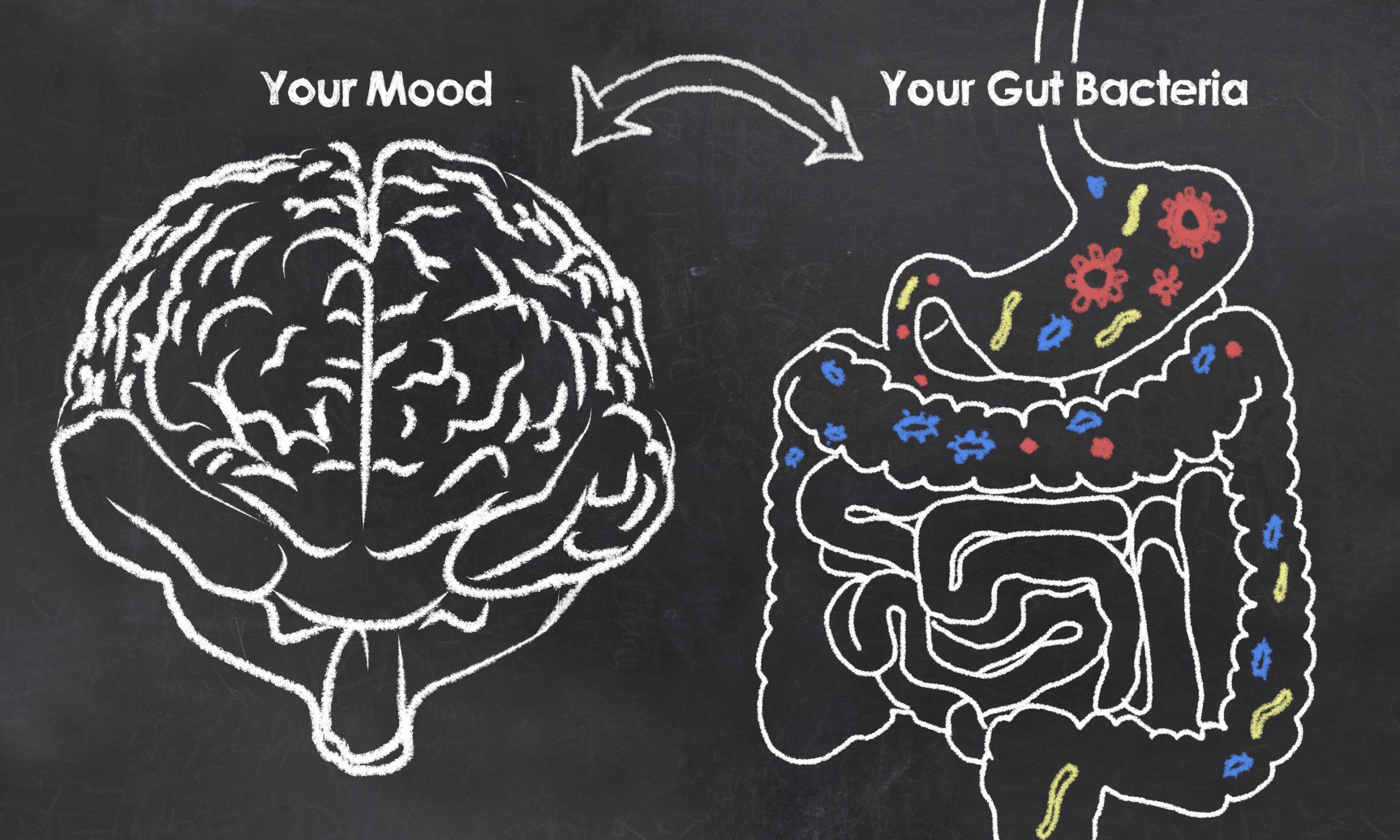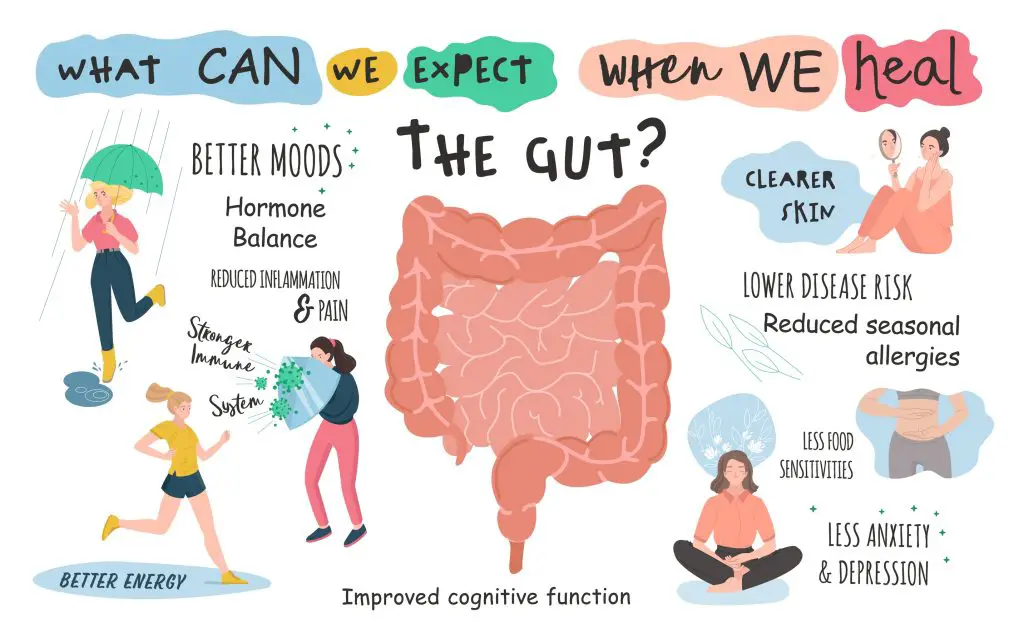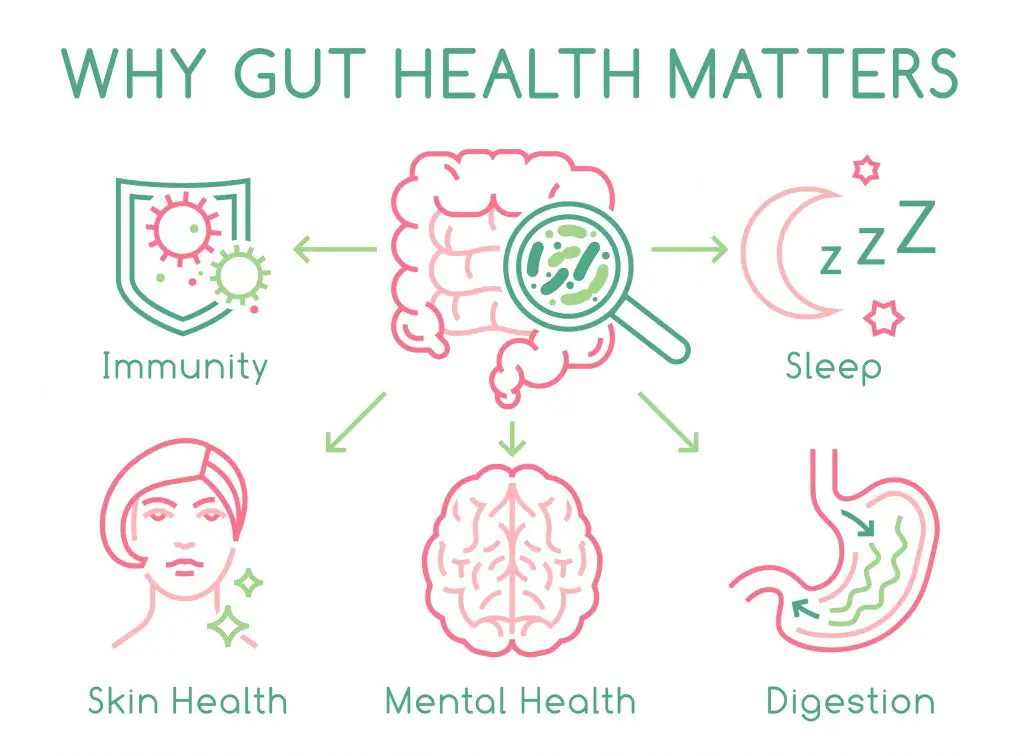7 Ways Your Gut Health can affect Mental Health

As an affiliate, we may earn a commission from qualifying purchases. We get commissions for purchases made through links on this website from Amazon and other third parties.
You may have heard that your gut health is closely linked to how it can affect mental health, but you’re not sure how to take care of your gut or what foods to eat.
It’s hard to know where to start when it comes to taking care of your gut health. There are so many conflicting opinions out there about what you should and shouldn’t eat.
Our guide on how to take care of your gut health which can affect mental health is the perfect place to start. In this guide, we’ll explain the basics of gut health and give you tips on how to improve yours.
Poor gut health has been linked to anxiety, depression, ADHD, autism spectrum disorder, and bipolar disorder.
The gut-brain connection and how it can affect mental health
The gut-brain connection is a relatively new idea that has been gaining popularity in recent years. The gut-brain connection refers to the relationship between the intestines and the central nervous system, which includes both the brain and spinal cord.
This connection can affect the mental health of individuals who experience gastrointestinal distress or diseases such as irritable bowel syndrome (IBS), Crohn’s disease, and ulcerative colitis.
There are a few ways in which the gut-brain connection can affect your mental health.
The first way is through the release of neurotransmitters. Neurotransmitters are chemicals that allow communication between nerve cells in the brain. Gut bacteria can produce neurotransmitters such as serotonin, dopamine, and GABA. These neurotransmitters can affect mood and behavior.
The second way that the gut-brain connection can affect mental health is through the immune system. The gut and the brain share a close relationship with the immune system. The gut is responsible for digesting food and absorbing nutrients, while the brain is responsible for controlling the body’s responses to threats.
The third way that the gut-brain connection can affect mental health is through the HPA axis. The hypothalamic-pituitary-adrenal (HPA) axis is a network of glands that control the body’s stress response. The HPA axis is controlled by the brain, and it regulates the release of cortisol, a hormone that helps the body deal with stress.
When the gut is inflamed, it can cause inflammation in the brain. This inflammation can lead to an increase in cortisol, which can cause symptoms of anxiety and depression.
A healthy gut means a healthy brain and vice versa.

The benefits of probiotics for gut health and mental health
Probiotics are the good bacteria that live in your gut. They’re necessary for a healthy digestive system and they help fight off bad bacteria, yeast, and other invaders. Probiotics also help regulate immune response and inflammation. Studies have found that probiotics can play an important role in mental health as well by reducing anxiety or depression levels.
Probiotics are live microorganisms that are similar to the ones already present in our gut. When we take them in the form of supplements, they can help to restore the balance of gut bacteria, which can have a positive impact on our overall health and well-being.
There is a growing body of evidence to suggest that probiotics can have a positive effect on gut health. Probiotics can help to increase the number of good bacteria in the gut, which can help to improve digestion and reduce inflammation. Probiotics have also been shown to boost immunity and reduce the risk of some digestive disorders, such as irritable bowel syndrome (IBS).
There is also evidence to suggest that probiotics can play a role in mental health. Probiotics have been shown to reduce anxiety and depression levels in some studies. One theory is that probiotics can help to regulate the production of neurotransmitters, such as serotonin, which are involved in mood regulation.
Probiotics are generally considered safe for most people. However, it’s important to talk to your doctor before taking probiotics, especially if you have a medical condition or are taking any medications.
If you’re looking to improve your gut health or mental health, adding probiotics to your diet is a good place to start. Probiotics are found in many foods, such as yogurt, sauerkraut, kimchi, and miso, as well as in supplement form. Look for supplements that contain live and active cultures of bacteria.
Aim to consume a variety of different probiotic-rich foods or take a probiotic supplement with a wide range of strains to get the most benefit. Start with a small amount and increase gradually as tolerated.

Tips for improving gut health
There are a few ways that you can affect mental health by using the gut-brain connection.
Here are some tips on how to take care of your gut health and improve your mental wellbeing:
1. Eat probiotic-rich foods. Probiotics are “good bacteria” that help keep your gut healthy. They can be found in fermented foods like yogurt, kefir, and kimchi, as well as in supplements.
2. Avoid processed foods. Processed foods contain unhealthy additives and preservatives that can harm your gut health.
3. Eat plenty of fruits and vegetables. Fruits and vegetables are packed with antioxidants and other nutrients that help keep your gut healthy.
4. Drink plenty of water. Dehydration can lead to constipation and other gut problems. Drink enough water each day to stay hydrated.
5. Get enough exercise. Exercise helps keep your gut healthy by promoting good digestion and circulation.
6. Avoid stress. Stress can wreak havoc on your gut health, so try to find ways to manage your stress levels.
7. See a doctor if you have gut problems. If you are experiencing gut problems such as constipation, diarrhea, or bloating, see a doctor for help.
In conclusion
The gut-brain axis is a two-way street: the brain communicates with your gut and vice versa. When you have good mental health, it’s important to take care of your gut health for optimal wellness.
Conversely, when you have poor physical or mental health, taking steps to support healthy digestion can help restore balance in both areas. It all starts with understanding the gut-brain connection.
Applying some or all of the tips above and creating habits in your daily life will improve both your gut health and your mental health too.
A quick reminder ..
Probiotics.tips aim to provide the most up-to-date information, help, and advice for YOU to make informed decisions. If you are unsure or uncertain and require more clarity, please reach out to us and we will gladly come back and advise you as best we can.
The best means to reach us is via email at info@probiotics.tips or fill out the form on our Contact Us page – click here.
Probiotics.tips
About Us
Our goal is to empower you with concise probiotic guidance for a healthier gut. With expert advice, we provide the knowledge to improve your well-being and navigate the world of probiotics efficiently, ensuring you achieve optimal gut health.
- Can You Take Probiotics While Water Fasting?
- Does Fasting Help Microbiome Diversity and Functionality?
- Does Fasting Help Your Bowels
- Does Fasting Help Probiotics? Understanding Gut Health Benefits
- Does Fasting Help the Gut: Understanding the Impact on Digestive Health
Disclaimer
As an affiliate, we may earn a commission from qualifying purchases. We get commissions for purchases made through links on this website from Amazon and other third parties.
Check these out on Amazon








